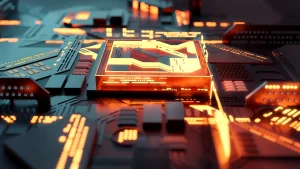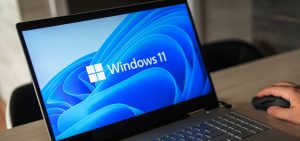Your computer is an essential tool for work, entertainment, and communication. Keeping it well-maintained is crucial to ensure its optimal performance and longevity. This blog post provides some useful computer maintenance tips that can help you keep your machine running smoothly.
Regular Cleaning
Cleaning your computer regularly is important for its longevity and performance. Dust, hair, and other debris can accumulate inside the computer, blocking airflow and causing the components to overheat. This can lead to system crashes, data loss, and even hardware damage.
To clean your computer, you should start by turning it off and unplugging it. Then, use a soft, lint-free cloth to wipe the exterior and interior of the computer, including the keyboard, mouse, and screen. You can also use compressed air to blow out dust from the keyboard and ports.
In addition, you should also clean the inside of your computer by opening it up and using compressed air to blow out any dust or debris. This will help prevent the fans from becoming clogged and overheating the components inside the computer.
You should also make sure to clean your computer on a regular basis, depending on how often you use it and the environment it’s in. For example, if you have pets or live in a dusty area, you may need to clean your computer more frequently.
Updating Software and Drivers
Keeping your computer’s software and drivers up to date is crucial for security and performance. Software updates often include bug fixes, new features, and security patches that address vulnerabilities and protect your computer from malware and cyber threats. Similarly, driver updates can improve hardware compatibility and performance.
To check for updates on a Windows computer, go to Settings > Update & Security > Windows Update. On a Mac, go to the App Store and click on Updates. You can also download and install updates manually from the software or hardware manufacturer’s website.
If you’re not sure whether you need to update a particular software or driver, you can check the release notes or changelog for that software or driver. This will give you an idea of what changes or improvements have been made and whether they apply to your system. You should also be careful when downloading and installing updates from third-party websites, as they may contain malware or other malicious software.
Disk Cleanup and Defragmentation
Over time, your computer’s hard drive can become cluttered with temporary files, cache, and other junk data. This can slow down your system and take up valuable storage space. Disk cleanup and defragmentation tools can help you free up space and improve performance.
On a Windows computer, you can access these tools by searching for “Disk Cleanup” and “Defragment and Optimize Drives” in the Start menu. On a Mac, you can use the built-in Disk Utility app to clean up and repair your disk.
Disk Cleanup removes temporary files, cache, and other unnecessary files from your computer, while defragmentation reorganizes the files on your hard drive to make them more efficient. You should run disk cleanup and defragmentation tools on a regular basis, depending on how often you use your computer and how much data you store on it.
Virus and Malware Protection
Your computer is constantly exposed to online threats such as viruses, malware, spyware, and phishing attacks. To protect your computer and your data, you should install reliable antivirus software that can detect and remove these threats.
You should also be cautious when browsing the internet, opening email attachments, and downloading files from unknown sources. Use strong and unique passwords, and enable two-factor authentication whenever possible.
It’s important to keep your antivirus software up to date and to run regular scans to check for any potential threats. You should also be careful when clicking on links or downloading files from unknown websites or sources.
These can often contain malware or other malicious software that can infect your computer and compromise your data. It’s also a good idea to use a pop-up blocker and disable auto-play for videos and other media.
Backup and Recovery
Backing up your files regularly is essential to protect your data from loss due to system failures, hardware damage, theft, or other disasters. You can use cloud storage services, external hard drives, or USB drives to back up your files.
Make sure to choose a backup solution that suits your needs and preferences. In case of a system failure, you can use the recovery tools provided by your computer’s operating system to restore your data and settings to a previous state.
It’s important to back up your files regularly, depending on how often you create new data and how important that data is to you. You should also make sure to test your backup regularly to ensure that it’s working properly and that you can restore your data in case of a disaster.
It’s also a good idea to have a backup plan in place in case your primary backup fails, such as having multiple backups in different locations.
Conclusion
By following these computer maintenance tips, you can ensure that your computer runs smoothly, stays secure, and lasts longer. Regular cleaning, updating software and drivers, disk cleanup and defragmentation, virus and malware protection, and backup and recovery are all essential elements of a good computer maintenance routine.
Make sure to implement these tips and check for updates regularly to keep your computer in top shape. Remember, a well-maintained computer is a happy computer!



